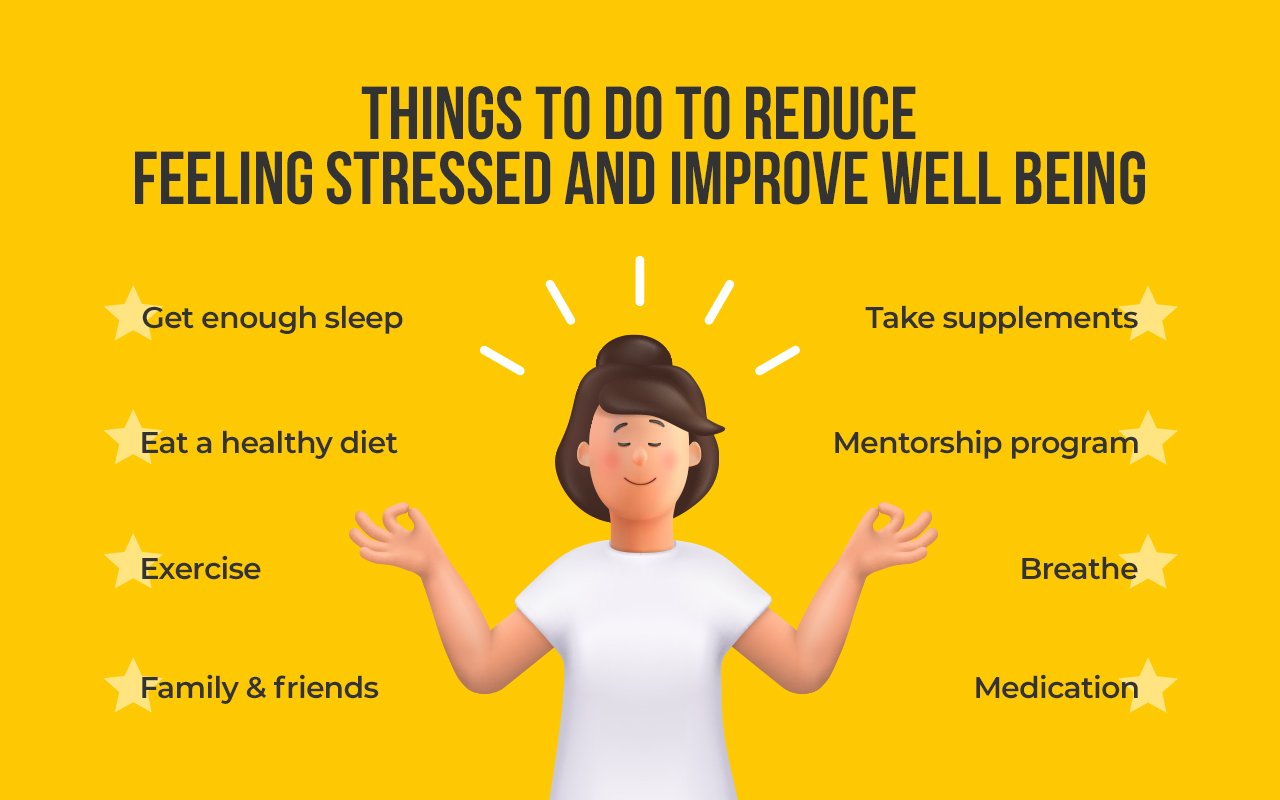Does Chronic Stress Negatively Affect Your Weight Loss and Muscle Building Efforts? The Role of Cortisol!
As someone with over ten years of experience helping people achieve their body transformation, I have worked with many clients. Although I applied my scientific methods to every one of them, I have had more success with some than others. Most people that followed my guidelines achieved impressive results in 3-6 months. Some could not manage even 2 hours of training a week on average; however, some followed most of my instructions to the best of their abilities and still struggled to get impressive results. They were better than when they came to me, but it was far from something they and I could be delighted with as their personal trainer.
Some made better results than others have made me think a lot and evaluate my work, methods, and nutrition plans. After much research and thought, it has come to my attention that apart from genetics, the main factors that would influence progress in the gym would be chronic stress, poor mental health, depression, and low self-esteem!
That's what inspired me to write this blog which will go in some great depth into how chronic stress and low self-esteem can affect your results in the gym. We will look into how it affects your ability to lose weight and build muscle and its impact on your cravings, ability to sleep, and energy levels.
This blog will also pay special attention to the stress hormone cortisol and how it can wreak havoc on your body and affect your life both inside and outside the gym! Finally, I will provide some supplements and tips on lowering cortisol and maintaining a healthy stress response. Thanks for reading!
Blog Outline
What impact does chronic stress have on our bodies?
Why is cortisol called the stress hormone?
What functions does cortisol have in our body?
How much cortisol should we have?
Can I still lose weight and put on muscle with high cortisol?
How does cortisol break muscle tissue?
How does high cortisol prevent fat burning?
How does too much cortisol affect my immune system?
How does high cortisol affect my blood pressure?
What can I do to reduce my cortisol levels?
What physical activities to do and which to skip when cortisol is chronically elevated?
How does low self-confidence affect my gym gains?
So, what can you do about it?
Conclusion
What impact does chronic stress have on our bodies?
Long-lasting stress can take a toll on our bodies. It can weaken our immune system, making us more susceptible to illness. And it can increase inflammation throughout the body, which has been linked to heart disease, arthritis, and other chronic conditions.
In addition to its physical effects, chronic stress can also lead to mental health problems like anxiety and depression. And it can interfere with our ability to concentrate, make decisions, and be productive at work or school.
When stressed, we're more likely to make unhealthy choices, like eating junk food or skipping workouts. And when our stress levels are high, our bodies produce more of the stress hormone cortisol. All of these effects can impact our ability to lose weight or build muscle.
Why is cortisol called the stress hormone?
It is because it is produced in response to stress. It is released by the adrenal glands, which are small glands that sit on top of the kidneys. Our adrenal gland produces two types of stress hormones: cortisol and adrenaline. The pituitary gland, located at the base of the brain, regulates both of these hormones.
Our pituitary gland releases adrenocorticotropic hormone (ACTH) when we're stressed. This hormone signals the adrenal glands to release cortisol into the bloodstream. Cortisol then travels to different parts of the body, where it helps us deal with the stress by giving us energy and increasing our blood pressure.
What functions does cortisol have in our body?
Cortisol has many functions in the body, including regulating blood sugar levels and helping the body respond to stress. But when cortisol levels are too high, it can negatively affect our health.
How much cortisol should we have?
When taking a blood sample, your cortisol levels should be between 5 and 25 mcg/dL. These values can vary widely, depending on a few factors like:
The time of day (cortisol levels are highest in the morning and lowest at night)
Your age (cortisol levels tend to be higher in adults than in children)
Your stress levels (cortisol levels increase when you're under stress)
Some medications like prednisone (a corticosteroid that's used to treat inflammation) and others can also increase cortisol levels.
Infections like mono or the flu can also cause cortisol levels to increase.
Pregnancy can cause cortisol to be high due to the stress of carrying a baby.
Birth Control Pills can affect cortisol as well.
When doing blood work, your cortisol levels should be checked in the morning when they are at their highest. If they are not and you think you might be suffering from stress, it is essential to get them checked by a professional as soon as possible.
Can I still lose weight and put on muscle with high cortisol?
If you stick to our workout program and meal plan, you can get results, but it will never be as efficient as it could be. You will suffer more than someone else who can manage their stress levels better.
High cortisol has many adverse effects on our bodies, directly affecting your progress in the gym:
Slowing down the metabolism
Increases in appetite
Cravings for sugary and fatty foods
Difficulty sleeping
Fatigue
Lowered immunity
These effects make it harder to lose weight and can even lead to weight gain. In addition, cortisol can also break down muscle tissue, making it harder to build muscle.
How does cortisol break muscle tissue?
Cortisol breaks muscle tissue by increasing the breakdown of amino acids. Amino acids are the building blocks of muscle tissue, so it's harder for the body to build muscle when they're broken down.
How does high cortisol prevent fat burning?
When our cortisol levels are elevated, our body goes into "survival mode." "Survival mode" means that our body starts to store fat and break down muscle for energy. The stress hormone also increases our appetite, leading to weight gain and accumulation of more fat. In some cases, you can not get rid of that stubborn belly fat no matter how hard you diet and train. That stubborn fat is called "visceral fat" and is directly linked to health conditions such as diabetes and heart disease.
How does too much cortisol affect my immune system?
Are you one of those people that seem to get the flu every two months for a few days? You might thank cortisol for that. When stress hormone levels are chronically high, it suppresses the immune system making us more susceptible to infections.
How does high cortisol affect my blood pressure?
Elevated cortisol levels can cause high blood pressure through the stress response mechanism. The stress response is a natural physiological reaction that occurs when under stress. It's designed to help us deal with stressors, but it can lead to high blood pressure when it's constantly activated.
What can I do to reduce my cortisol levels?
There are a few things you can do to lower cortisol levels:
Get enough sleep
Sleep is vital for stress management. When we're well-rested, we're better able to handle stress.
Exercise
Exercise is a great way to reduce stress. It helps release endorphins, which are hormones that make us feel good.
Eat a healthy diet
Eating a healthy diet can help to reduce stress levels. Foods like omega-three fatty acids, magnesium, and vitamin C can help to reduce stress.
Take supplements
There are a few supplements that can help to reduce stress levels. These include magnesium, ashwagandha, and Rhodiola Rosea.
Breathe
Taking deep breaths can help to lower stress levels. Breathing exercises can be done anywhere, at any time.
Mentorship program
Life coaching programs help to reduce stress levels and provide support.
Family & friends
Do not spend too much time alone. Instead, surround yourself with people that love you, listen to you, and uplift you!
Medication
Some medications that lower cortisol levels are oral contraceptives, stress-reducing drugs like Valium or Xanax, and Gabapentin. We do not recommend these, and if taken, they must be prescribed by a medical practitioner.
These techniques can help lower cortisol levels and improve your overall health.
If you think you might be suffering from high cortisol levels caused by your inability to deal with daily stress, you might look into some of the natural recommendations. However, if you think the issue is much deeper, you might want to seek help from a professional. A therapist or counselor can help you develop stress-management techniques that work for you. We also have a Mentorship program that is run by our life coach Andjela Tanasic which might be a significant first step towards improving your wellbeing and self-confidence.
What physical activities to do and which to skip when cortisol is chronically elevated?
If your cortisol is elevated, you should avoid any very long and intense activity such as HIIT (High-Intensity Interval Training), high volume weightlifting, training to failure, and training that requires max effort.
Instead, do activities that are lower-intensity and that you enjoy. You can still lift weights and do a spinning class as long as it is moderate intensity. You might most benefit from lower-intensity activities like walking, yoga, Pilates, or moderate cardio.
Give your body all the nutrients it needs to function optimally. It would be best to avoid crash dieting, which can further elevate cortisol levels. Instead, focus on eating a healthy diet rich in complex carbs, fruits, vegetables, and lean protein.
How does low self-confidence affect my gym gains?
People who do not think highly of themselves and do not believe in their abilities will often have a negative approach to everything in life, including their gains in the gym. A lack of self-confidence will make you feel like you are not good enough, which leads to negative thinking and a pessimistic outlook. This can impact your gym performance as you'll be less likely to push yourself, less likely to try new things, and more likely to give up when things get tough. These things can lead to a plateau in your progress or, even worse, a regression in your gains.
But let's say you are not a quitter, and you keep showing up with a negative attitude towards yourself that negativity will make your journey harder than it needs to be.
So, what can you do about it?
One of the best things you can do is find a role model, a good training buddy, or a coach you look up to and who believes in you. Having someone in your corner cheering for you and accepting that you can achieve great things can make a difference. Also, openly communicating with that person about your insecurities will most definitely help!
Learn about positive self-talk as it can also help you change the way you think and feel about yourself. Instead of beating yourself up after a bad workout, give yourself some credit for showing up and trying. That positive self-talk will slowly become second nature, and your overall outlook on life and your gains will improve.
Compete with yourself and not with fitness influencers who, in many cases, work on their physique 24/7 and often even abuse anabolics.
Conclusion
Stress can harm our weight loss and muscle-building efforts. The hormone cortisol is responsible for many of the adverse effects of stress, including breaking down muscles and making us tired. There are many ways to lower cortisol levels, including supplements, breathing techniques, or even mentorship life coaching programs. If you think you might be struggling with stress, it's essential to reach out for help. Many resources are available to help you manage stress and improve your overall well-being. Thanks for reading!
Learn more with Dubai’s main fitness and wellness blog:
To find out more about our services, check out:
#StayStrong #BeFortius










